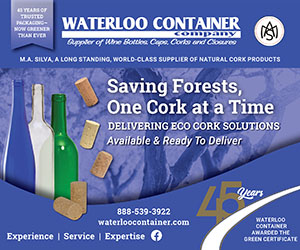Importing Juice vs. Fresh Grapes
Q: I have been making wine at an “urban vintner” in New Jersey for about 15 years. I have always ordered grapes and crushed/pressed them using their equipment. Last week I bought a barrel of Chilean Merlot and they advised me to buy juice rather than grapes. They said if you crush soon(er) after picking you get a better wine. What is your opinion?
— Ralph Obernauf • Bridgewater, New Jersey
A: Well, it seems to me that Chile to New Jersey is an awfully long haul. I often, in my blog and in this column, advocate that the distance from vineyard to crushpad be as short as possible. Your friends are right; distance and, especially, time, can cause a degradation of quality. When a grape cluster is removed from the vine, no matter how carefully, there is some jostling and juicing that happens. Once juice is exposed to the air it begins to oxidize and begins to be degraded (read: eaten) by ambient yeast and bacteria. This all contributes to a possible increase of microbial and oxidative by-products including aldehyde production, bloom of unwanted bacteria species, and most commonly, volatile acidity (acetic acid) production. Though of course the cold storage shipping conditions help to slow these reactions down, they will still take place to some extent. When you unpack your grapes, smell critically for any off odors and see if there’s much juice in the bottom of the containers. If so, I would strongly recommend juice or concentrate.
All that being said, there are some “pros” of buying fresh grapes. Even though the grapes will have to suffer through a long journey, you should still be able to get a pretty good visual on the condition of the grapes, the color of the stems (brown stems are often a sign of ripeness) as well as the color of the seeds (likewise). You’ll be able to tell the thickness of the skins, the evenness of the berry sizes as well as average cluster sizes. If you are buying concentrate or juice, someone’s already pressed the grapes and removed all these little visual details. Now I’m not going to suggest you can tell everything about the vineyard and growing conditions just by looking at a grape seed, but all of these data points can help you form an aggregate opinion about the source of your fruit. If there are things you don’t like about the resulting wine, sometimes one of these visuals can help you diagnose future problems or at least let you know that you may not want to work with that vineyard source anymore.
In the case of varietals that “pink” quickly like Pinot Grigio, it’s probably worth it to buy clean juice or concentrate rather than press your own. Overall, however, I prefer to have as much information as I can about where my raw material is coming from, and being able to handle the actual grapes is one way to help you get there. If the grapes arrive clean and in good shape, you might want to continue doing what you’re doing.


